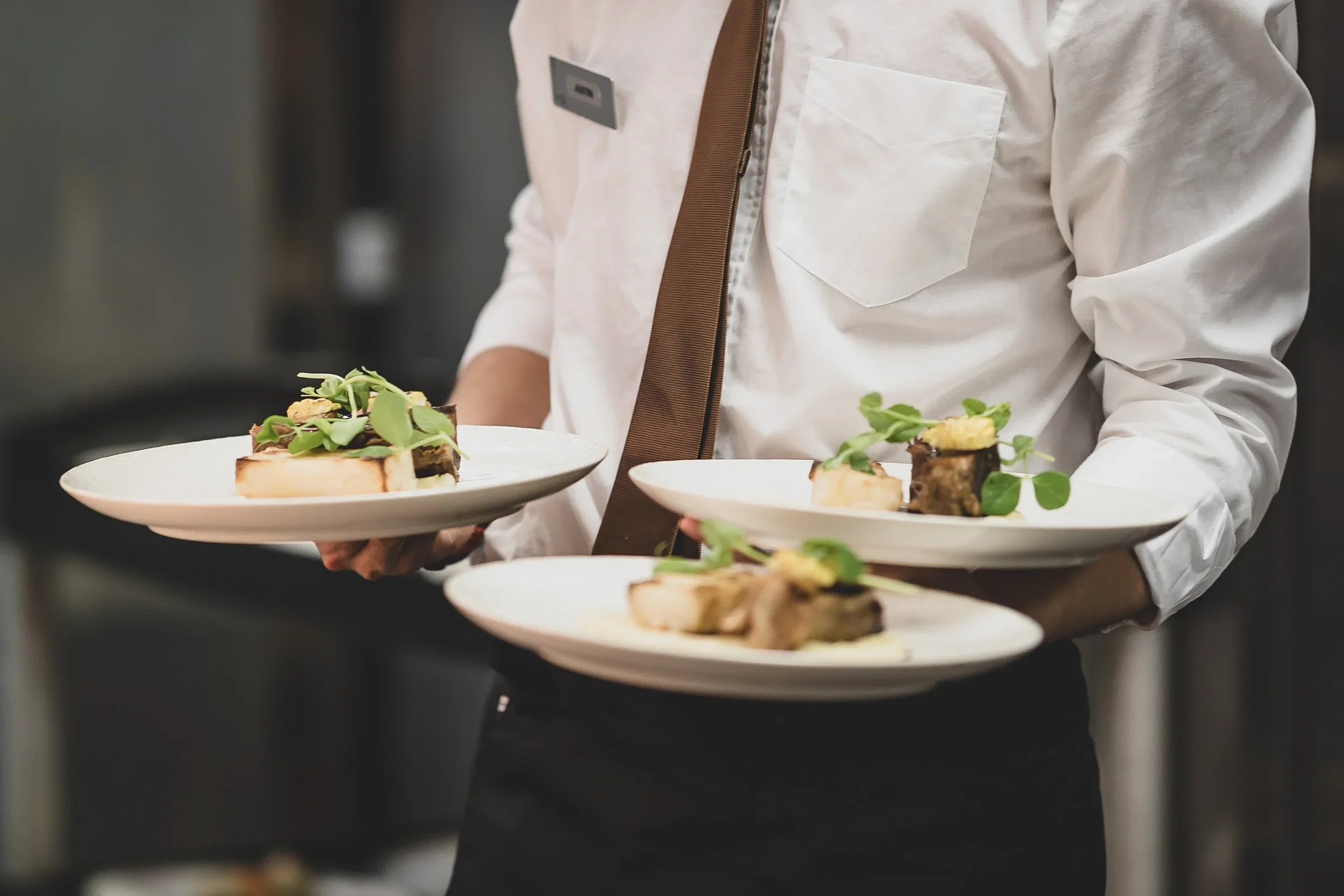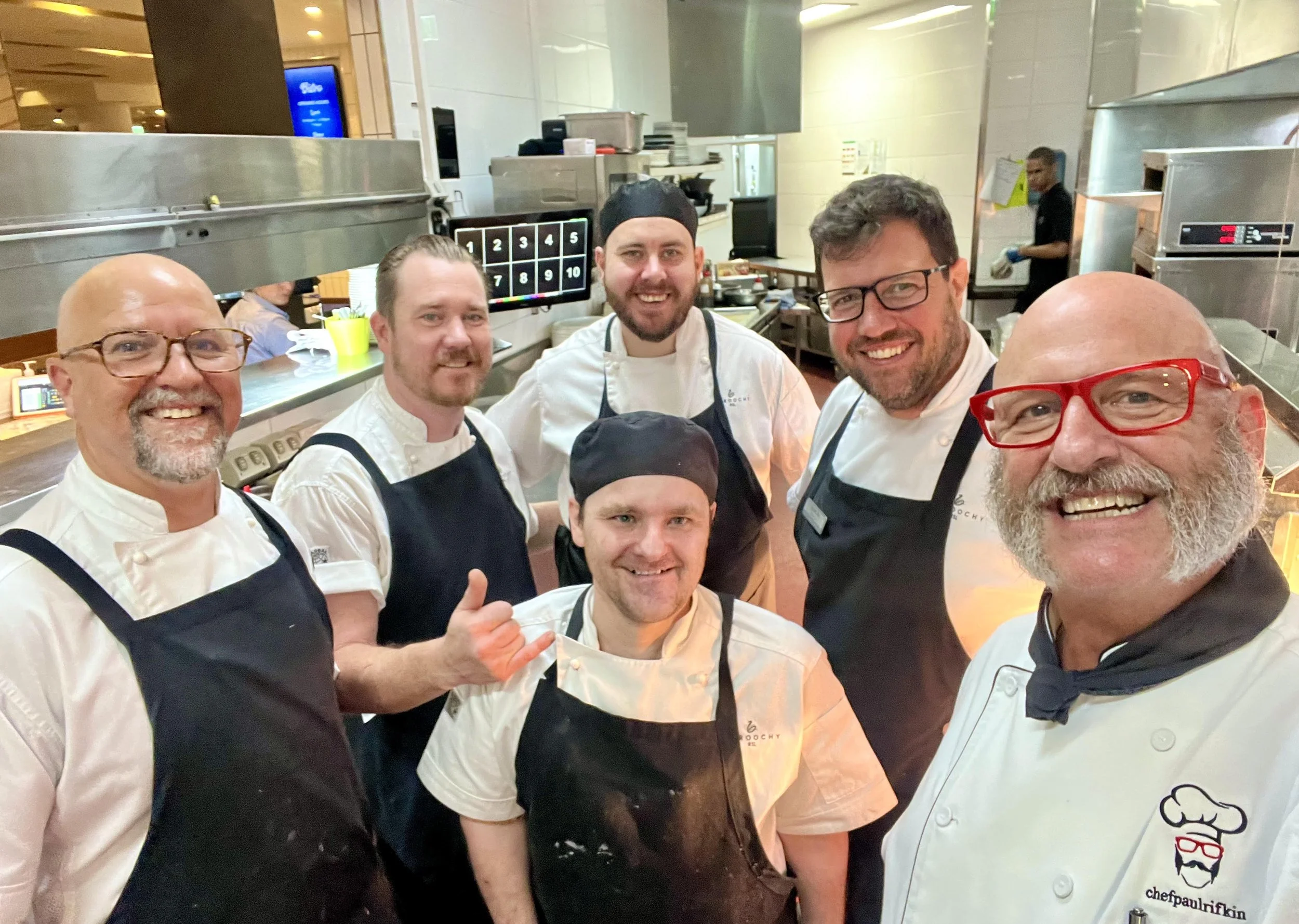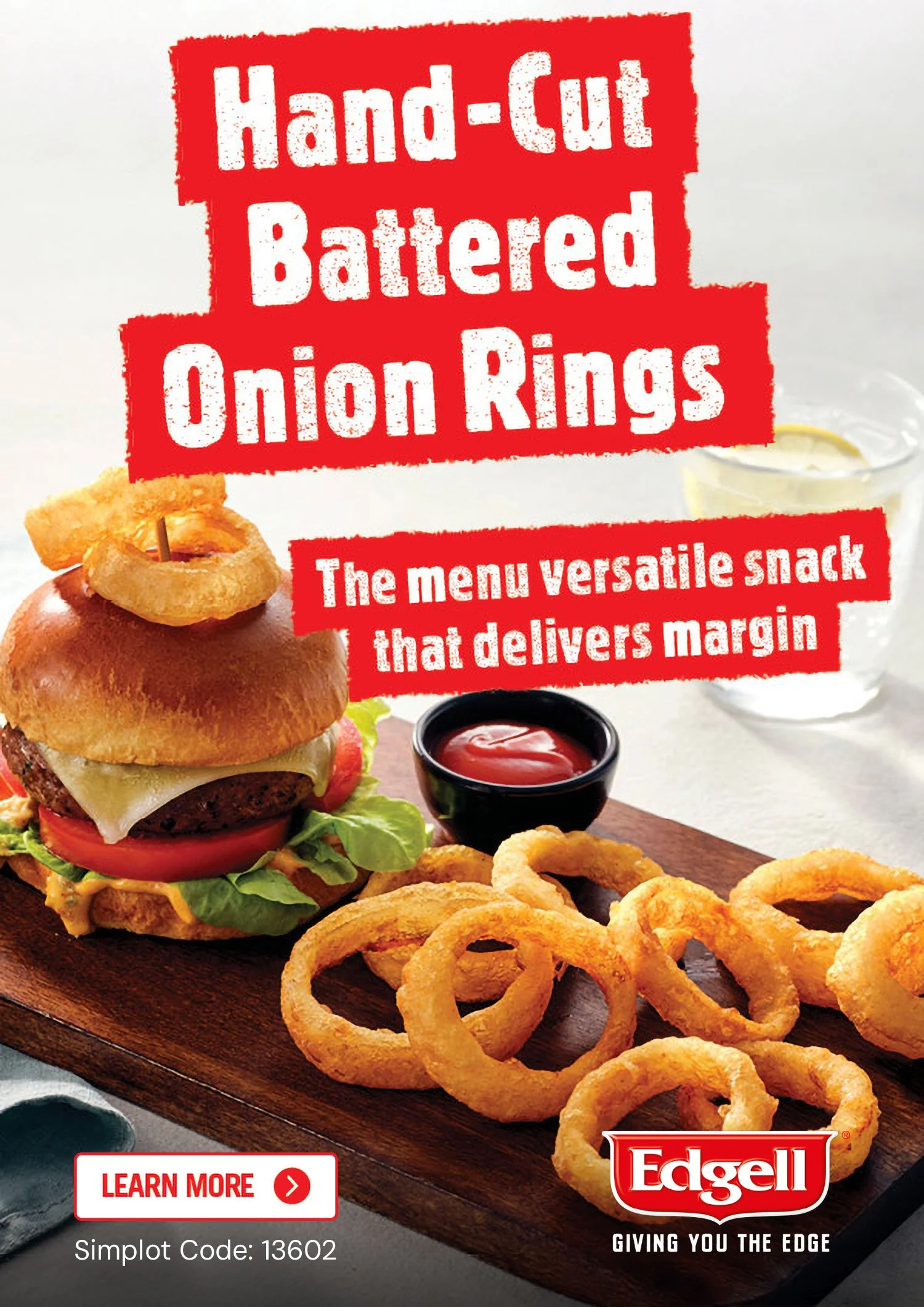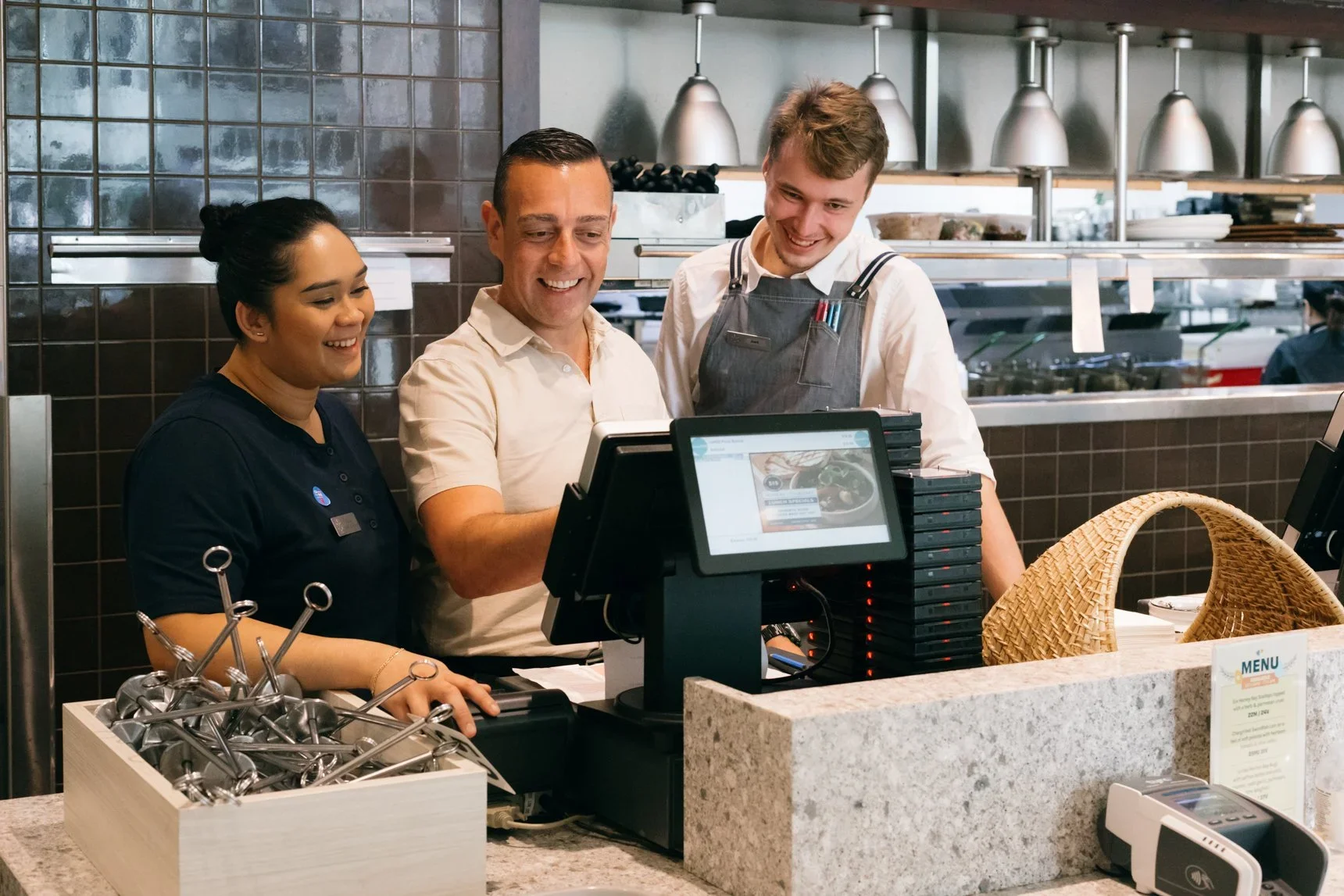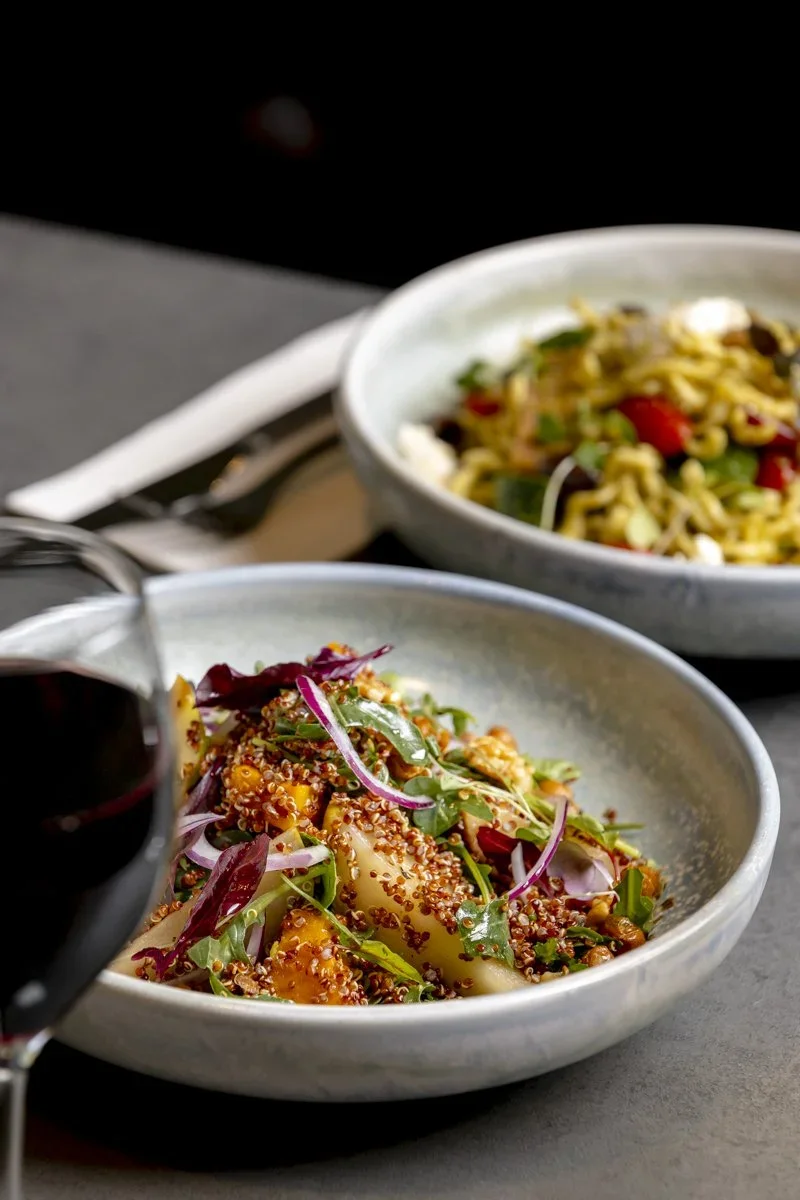Setting the standard in clubs – consistency is the keyword
/Having spent 17 years as executive chef at Campbelltown Catholic Club, Paul Rifkin today spends much of his time consulting to the club sector, including undertaking audits of club venues. Foodservice Rep spoke to Paul about the state of play in the club market – what the leading clubs are doing right, and what others need to do to lift their game.
“When it comes to club food, consistency is the keyword – setting a standard and holding it,” Paul says. “That can be as simple as ensuring that whether you’re making pizzas with fresh dough or a pre-made base, you’re delivering consistency it how it presents, and making it the best your team can do, served in a timely manner.
“In clubs it’s always a question of striking the right balance between quality and speed. If the customer has to wait an hour for their food, they won’t be happy – but neither will they be if they get it in 15 minutes and it’s rubbish.
“A lot of times in club kitchens they’re putting on dishes which need babysitting”
paul rifkin at right with club workers for whom he consults
“So it’s about working out the balance and agreeing on a standard. The clubs that do it well don’t just put a dish on the menu – they review, they take customer and staff feedback on board, they adjust the recipe to not only make sure it looks good but that it can be prepared consistently. A lot of times in club kitchens they’re putting on dishes which need babysitting – they want to serve something really nice, but if you’re making a dish that you have to stand and babysit when there are 10 others you could have pushed out in the same time, that can hijack the rest of the operation.”
Getting the best out of back of house
Paul says the leading clubs have their kitchen operations well planned to get the best use out of back of house equipment. “It’s normal for kitchens not to have enough burners so they end up with a huge bottleneck if too many customers order certain dishes; it’s the same with fryers, clubs will put all this fried food on the menu because customers love it but if they don’t have enough fryers they can’t keep up with the orders.
“When it comes to the pass, can you put up five plates, six plates and is there enough heat? Many clubs will have a big pass and put multiple plates up, but there’s not enough heat because the kitchen exhaust fans are pulling it up – you can often stand at the pass and feel the airflow going through, which is cooling the plates. Then the customers complain the food’s coming out cold.
“It’s relatively easy to write a menu but the staff need to be able to do it and the kitchen needs to be equipped for it or it will fall over”
“The clubs which do it well are also well aware of the strengths of their chefs and are constantly training them – they’ll have a training matrix in place to make sure everybody’s being brought up in every section, which gives you a more consistently strong team. The food is actually the easiest part if you can get the infrastructure correct, and this is what people forget. It’s relatively easy to write a menu but the staff need to be able to do it and the kitchen needs to be equipped for it or it will fall over.”
To illustrate this point, Paul cites some of the most popular club meals: “Salt and pepper squid is virtually our national dish and if you go to 50 clubs and order it you’ll have a whole variety of experiences. In some it will look like a piece of limp rubber with little flavour but very oily, in another the flavour will pop in your mouth and there’ll be a crispy thin coating and every time you cut it it’s going to crunch. Some will offer a beautiful simple garnish on the plate and others a huge side salad that nobody’s going to touch – and this is one of the simplest dishes on the menu!
“Then you look at the chicken schnitzel which is the next biggest seller – the ones who do this really well cook it straight through in a fryer, the crumb is put on fresh so it doesn’t have moisture on it, the quality of the oil is good. But if you take a schnitzel which was wet when it went into the fryer and the oil wasn’t clean, it’s going to be soggy and have a pool of oil under it.”
Mystery shop pays off
One of Paul’s research tactics is to go into a club and do a ‘mystery shop’ – “before I do any work with a club, I go in and pretend I’m a customer, I ask dumb questions and I see what the staff do. I was in a club in Sydney last week and I was upsold on everything – there were about 14 of us at the table and the person on the till kept asking, ‘would you like to add this?’, ‘did you know this comes as an option with that?’. I would estimate I paid nearly 20 per cent more for that table than I’d intended to, which is a real tribute to the training of the staff. But the reality is that 90 per cent of clubs don’t do this. The clubs which do are making an extra 20 per cent per head and the customer is getting a better experience because they’re eating things they didn’t expect to eat. And the best thing is when the person clearing the table says, ‘The desserts here are amazing, shall I get you a list?’ and you say to them ‘What do you recommend?’ and they say ‘The brulee’s to die for’ and next thing you’re ordering it! And the best of them use the wonderful which word – ie, instead of ‘Would you like coffee?’ they’ll ask ‘Which coffee would you like?’
“You’ll often hear how important menu variety is, but that doesn’t mean you need a large menu”
“To me, a good club is one which serves the customer what they want, has good profitability, good consistency. You’ll often hear how important menu variety is, but that doesn’t mean you need a large menu – you can have a smaller menu with continually changing specials, so every time your regulars come in they see something they haven’t tried. Some clubs offer brilliant specials but in others it’s FOD, POD, SOD – fish of the day, pasta of the day and salad of the day, and that drives me mad!”
Paul emphasises the best clubs are those with their processes so fine-tuned that they can deliver large volumes of food with minimal wait times. “The club I mentioned where they were doing all the upselling, every table in the place was booked out for Sunday lunch and it’s quite a large dining area. So we thought we were in for quite a wait for our meals, but before we could even get the drinks order together our buzzer sounded and we assumed it would just be the entrees but it was the entire order of food, which they’d got out in twenty minutes flat.”
Asked to nominate some of the best clubs of his acquaintance, Paul says “The Catalina Club in Bateman’s Bay has one of the best chefs who does an amazing job. The Ary Toukley on the NSW Central Coast is terrific, as is Kiama Leagues, the Yarraville Club in Melbourne and Coolum Surf Club on the Sunshine Coast. Going west, Griffith Services Club and Club Dubbo are great and in Warren they’re doing something like 500 chicken satays a week, 80 takeaway pizzas on a Friday night and another 80 on Saturday – and that’s in a town of 2000 people.
“You constantly hear the industry is doing it tough but if you look around you can find plenty of clubs that are absolutely smashing it. Even a club I deal with in the northern NSW town of Casino – the RSM Club – has a dozen or so burgers on the menu and they absolutely slay it! They’re a very forward thinking operation with three different venues in the town. Singleton Diggers Club is another with a secondary operation that is doing a fantastic job.”
Striving to constantly improve the guest experience
“We know that if we want to be the customer’s preferred choice, we need to deliver excellent food that’s consistent every time, coupled with the best customer service standard. If we can provide that every time, they’ll keep coming back, so we put a lot of focus into delivering a value proposition that exceeds their expectations.”
That’s the philosophy of Steve Sidd, Managing Director of Catering HQ Group which runs the food offerings in 13 clubs all over NSW and is currently looking at expanding into Victoria and Queensland.
“Our numbers are going from strength to strength,” Steve says, “and it’s all about how we engage with the members that come to the club – we strive to constantly improve the entire guest experience. Right now we’re focused on technological innovation to make our operations more efficient – we’ve recently introduced AI to take our reservations, which frees up our team to spend more time with customers as opposed to being pulled off the floor.
steve sidd (centre) with club staff
“Building excellence through customer service standards is what hospitality is all about”
“The focus is on looking at how we can offer better customer service standards, because this is what drives loyalty. We always ask how can we create a really memorable moment for every person that comes to the club. In back of house we ensure food is consistently presented each and every time – and we put a lot of effort into training too, making certain our food prep and presentation is correct.
“It doesn’t matter where our customers go across the Catering HQ group, they can have an expectation that if it’s been served a certain way at one venue it will be the same at the next. The colour of the plates may vary but the dish itself is exactly the same because it’s to our specs every time.”
one of the dishes from castle hill rsl’s autumn menu
Helping to ensure this consistency of presentation is Catering HQ’s centralised production kitchen. “All our main ingredients, slow cooked items such as sous vide lamb, backstrap etc, and our portioned meals are done there, then supplied to our venues,” Steve explains.
He adds that a key element for success in the club environment is investing in the kitchen and food. “Food is often not the club management’s forte, it’s left up to the executive chef. But the club really needs to invest in its food offering, not just in its bars and gaming, because increasingly it’s food that brings people in. And it’s loyalty that will drive longterm success.
“Clubs play a vital role in many communities and I think for many clubs it’s really about going back to the basics of what our industry is all about – it’s hospitality. When you have regulars who come daily, weekly or fortnightly, it’s all about how you engage with them – remembering their names, their favourite meals, where they like to sit, what type of wine they prefer. Building excellence through customer service standards is what hospitality is all about.”

